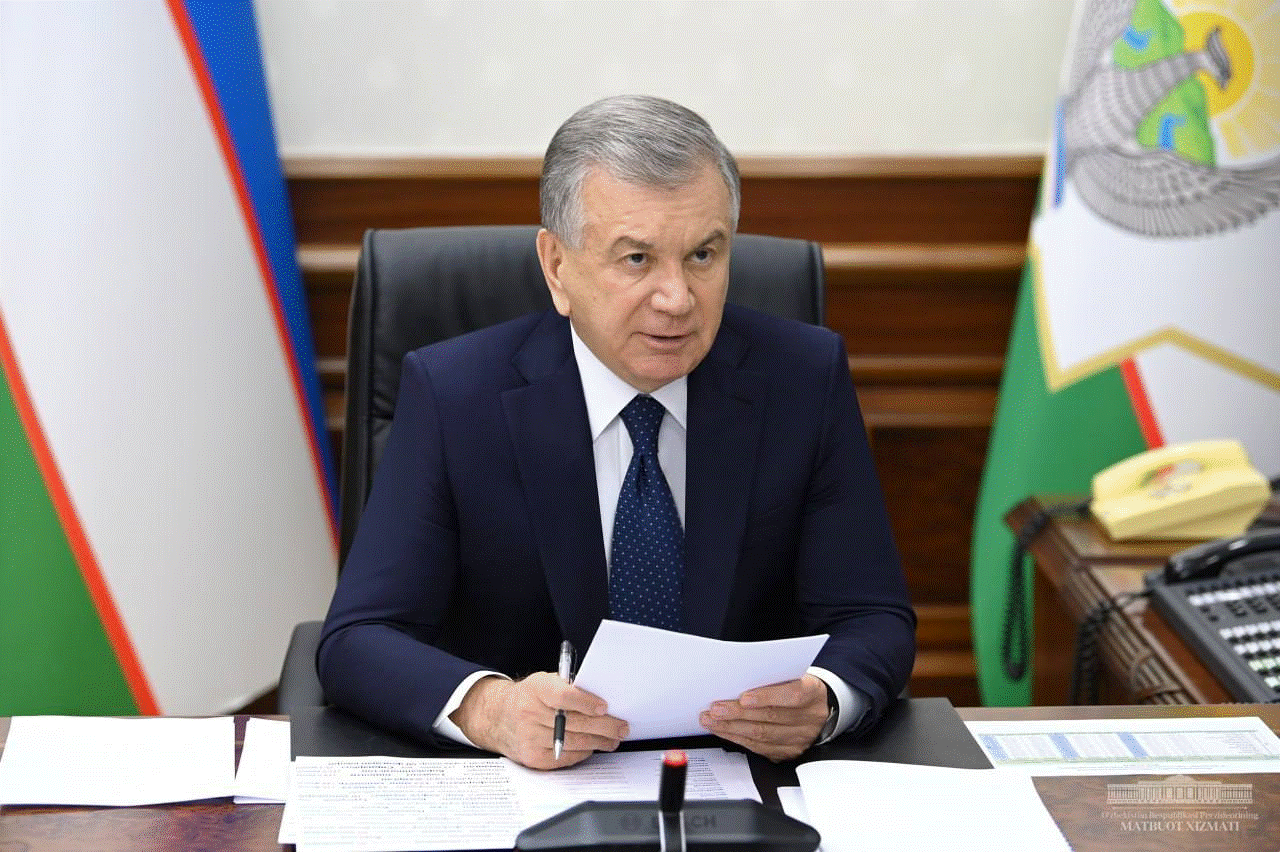
On December 12, under President Shavkat Mirziyoyev, a discussion took place on measures to further improve the raw cotton procurement system.
At a video conference meeting chaired by the head of state, held on November 9 of this year, existing problems in the cotton industry were analyzed and the need to organize relationships between clusters and farmers and cotton seed production based on new approaches was pointed out.
Proposals developed in accordance with these instructions were considered at the meeting today.
In particular, starting from the 2024 harvest, relations between raw cotton producers and cotton-textile clusters will be established in a new way.
Before planting seeds, farmers and clusters within one region will enter into futures contracts for cotton procurement based on soil fertility indicators in the “raw cotton section” of the Commodity Exchange at auctions held separately for each region.
In this case, the farmer places the amount of cotton he has grown on the exchange and enters into a futures contract with the cluster within his region that will offer a higher price. The initial price is determined based on the average price of cotton fiber on the New York Stock Exchange over the past 12 months.
Farmers will be able to sell the volume of cotton harvested in excess of the fulfillment of the futures contract, as well as primary and secondary products obtained from raw materials, directly to the cluster with whom the futures contract was concluded, or to any other entity on the exchange.
In the case of farmers growing raw cotton using their own funds, including commercial loans, raw cotton and primary and secondary products obtained from it can be freely sold on the exchange;
At the meeting, the importance of organizing training seminars for farms growing raw cotton on the procedure for participating in exchange trading was noted. It has been determined that clusters and other enterprises will accept cotton raw materials only through electronic scales and will introduce an automated system for accounting for cotton fiber.
Starting from the 2024 harvest, a new system will be introduced for allocating loans to farmers and clusters from the Agricultural Support Fund for the cultivation of raw cotton and final payments.
When implementing agrotechnical activities using allocated loans, suppliers of goods, works and services, including material resources, are selected by farms and clusters independently.
Loan applications will be submitted entirely electronically.
The meeting emphasized the need to update the procedure for organizing cotton-textile clusters.
Thus, those wishing to create a cluster will have to establish at least two stages of production of textile products, and also should not have overdue debts on taxes and mandatory deductions, as well as bank loans.
The Republican Commission for Coordinating the Activities of Cotton-Textile Clusters will be disbanded, and applicants wishing to organize the activities of the cluster will be selected based on an open and transparent online competition.
The Ministry of Agriculture will maintain a register of clusters and regularly publish it on its website. The ministry has been tasked with creating a program for automated rating of clusters based on a system of critical performance indicators.
Issues of developing seed production and increasing cotton yields were also discussed at the meeting.
The Presidential decree developed for this purpose provides, as an experiment, to allow the sowing of foreign varieties of cotton on 10 percent of cotton areas starting next year.
Also, as an experiment, high-yielding local and foreign varieties will be placed in plots in 14 districts with low soil fertility scores and difficult water supply.
The importance of introducing special agrotechnical and simplified quarantine requirements for imported cotton varieties, and the cultivation of these varieties under special quarantine control and on the basis of scientific instructions from the Cotton Council was noted.
Cotton clusters and farms will be given freedom to place cotton varieties, but in accordance with a guaranteed seed reserve.
A number of tasks are being identified to stimulate the creation of new productive and industrial varieties of cotton in the republic.
In particular, clusters and farmers will be allowed to act as co-authors of the corresponding variety when developing local promising cotton varieties, creating the production of elite quality seeds and commercializing the variety. It is planned to gradually transfer the sphere of procurement of certified seeds to clusters and private seed-growing enterprises.
Starting in 2024, varieties with a yield of less than 30 centners will be regularly identified and replaced with high-yielding domestic and foreign varieties.
The Ministry of Agriculture has been tasked with developing a mechanism for introducing this system and transforming activities